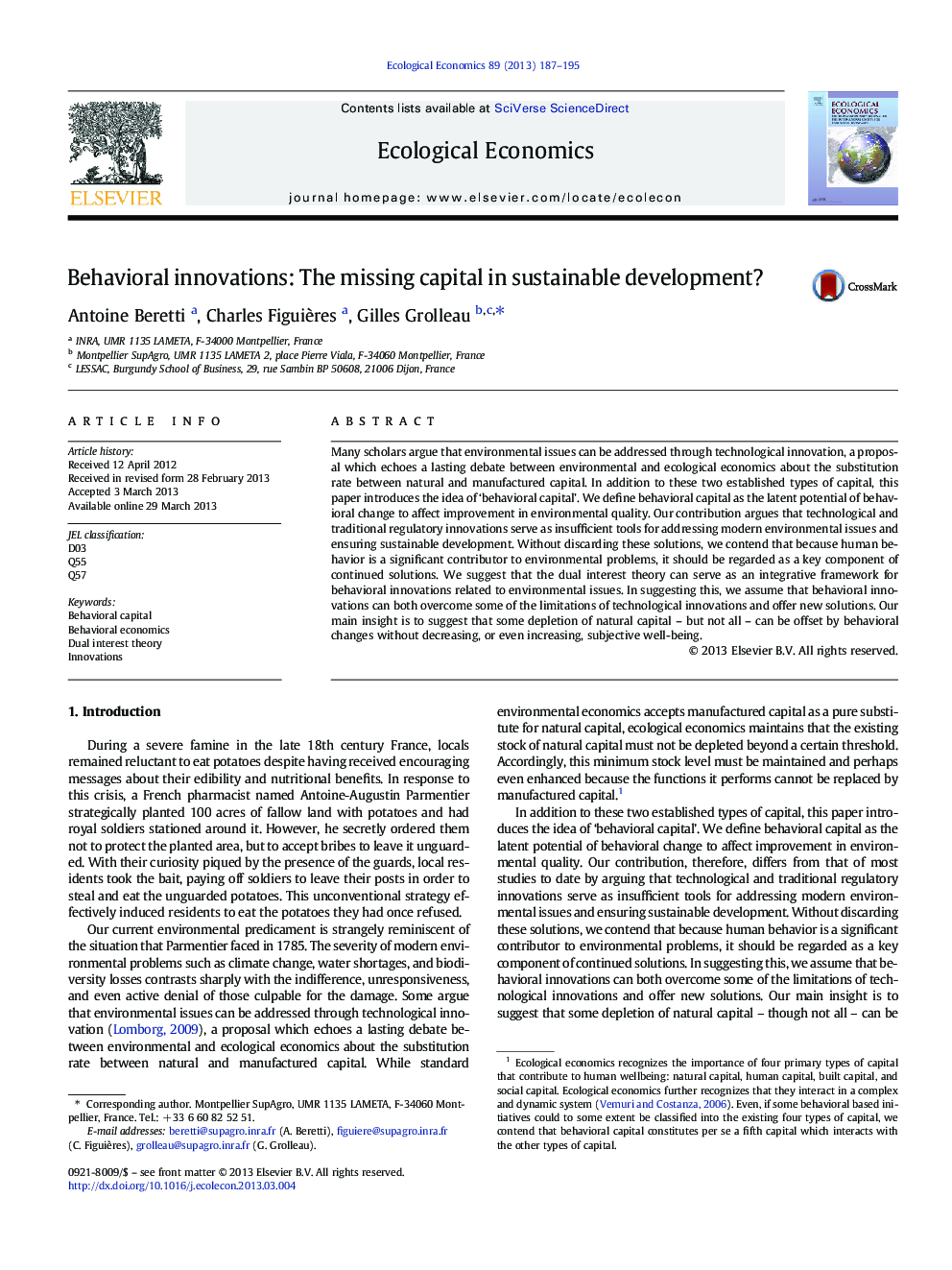| Article ID | Journal | Published Year | Pages | File Type |
|---|---|---|---|---|
| 5050098 | Ecological Economics | 2013 | 9 Pages |
â¢We define 'behavioural capital' as the latent potential of behavioural change to affect improvement in environmental quality.â¢Behavioural innovations can complement technological innovations and offer new solutions which have their own weaknesses.â¢Some depletion of natural capital - but not all - can be offset by behavioural changes without reducing subjective well-being.
Many scholars argue that environmental issues can be addressed through technological innovation, a proposal which echoes a lasting debate between environmental and ecological economics about the substitution rate between natural and manufactured capital. In addition to these two established types of capital, this paper introduces the idea of 'behavioral capital'. We define behavioral capital as the latent potential of behavioral change to affect improvement in environmental quality. Our contribution argues that technological and traditional regulatory innovations serve as insufficient tools for addressing modern environmental issues and ensuring sustainable development. Without discarding these solutions, we contend that because human behavior is a significant contributor to environmental problems, it should be regarded as a key component of continued solutions. We suggest that the dual interest theory can serve as an integrative framework for behavioral innovations related to environmental issues. In suggesting this, we assume that behavioral innovations can both overcome some of the limitations of technological innovations and offer new solutions. Our main insight is to suggest that some depletion of natural capital - but not all - can be offset by behavioral changes without decreasing, or even increasing, subjective well-being.
